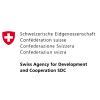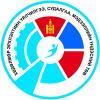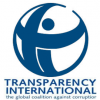Brief information about the survey:
The objective of the Review initiative is to generate a body of knowledge to guide national evaluation capacity development for the SDGs. Specifically, it will showcase successes, lessons, and learning from national evaluation systems; foster peer learning among stakeholders; trigger interest in a regional State of Evaluation report; and inform global, regional, and NECD guidance through the production of readiness assessments at the country level. The next step after the production of country case studies is the production of a regional synthesis report. The regional synthesis will identify patterns and lessons emerging from the country cases related to strengths and weaknesses of national valuation system, readiness to support evaluation for the SDGs, and related trends and priorities in NEC needs. It is expected that the case studies and the regional synthesis will feed into country-led NECD strategies at the national level, and forward into new cases. It is also envisioned as open-ended, with the dissemination of results ideally sparking ongoing and expanding engagement of evaluation stakeholders at national, regional, and potentially global levels.
Description of actual services provided by your team within the assignment:
This work is part of the production of a regional synthesis report . Therefore the case study of Mongolia is conducted under the proposed integrated framework and methodology which produced by International two consultants. Under the implementation of the case study, research team aimed to reach the following objectives:
- Map national evaluation systems (institutions, actors, relationships, and processes), including both state and non-state elements
- Identify lessons, good practices, challenges, gaps, and success factors for evaluation capacity in each country,
- Produce assessments of the readiness of national evaluation systems, including both state and non-state elements, to support progress towards the SDGs, and
- Present the findings in a report that includes recommendations for the range of national evaluation stakeholders on further national evaluation capacity for the SDGs.
Related projects
-
Leveraging Science and Tradition in DRR in Mongolia III (LTS3), Final Evaluation
Client
International Organization for Migration
.png)

.png)

.png)
.png)
.jpg)




































